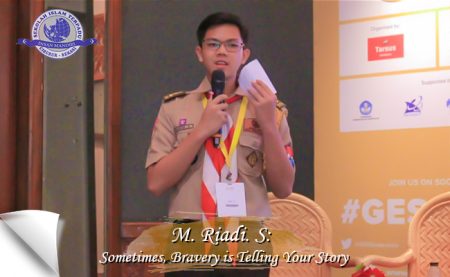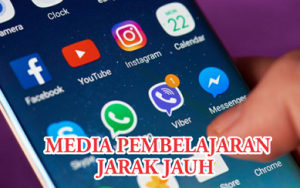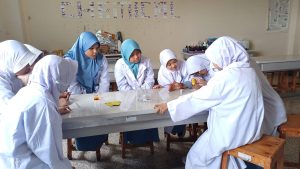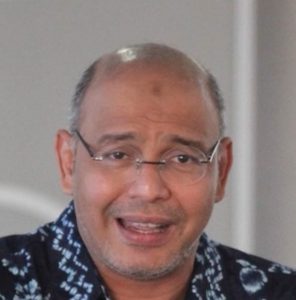JAKARTA(18/9)–Munif Chatib brought a student to his session at Global Education Supplies & Solutions Indonesia 2019 held in the assembly hall of Jakarta Convention Centre. The guest star of this session titled How to Avoid Abuse was an eleventh grade social studies student from SMAIT Boarding School Insan Mandiri Cibubur named M. Riadi S. To give an unknown student seven minutes of stage time out of the very limited one hour period of his session was a power move on Chatib’s part, and it worked.
Riadi served as a breath of fresh air in an assembly hall filled with mostly educators and tech-people—he was a student. Here was an amazing education focused exhibition and conference, yet it missed a vital part of the entire story, a student’s perspective. There was a gap in the narration, then Chatib saw it, and then Riadi filled it. One of a key point in Chatib’s presentation was about violence as a result of toxic masculinity. Chatib didn’t word it as such but in essence, that was what it was. Taking this into consideration, what Riadi did was extraordinary.
Rewind back several hours before, I was there to help Riadi prepared himself for the occasion. I didn’t do much except for pointing out where and when he might have needed a bridge and what was missing from his story. Obviously, I had my own opinions about it but this was not about me and I acknowledged that. This wasn’t a discussion, a therapy session, or a lecture. This was about his own organic past experience and perspectives, I was just there to help him get that out.
Riadi was given the stage for about seven minutes to talk about his past experience of taking abuse from his seniors in his previous school. Putting it like that, it sounded fine. Except, readers, here’s the thing: Riadi was a sixteen years old teenage boy willingly talking about his past abuse in public in front of roughly a hundred people. A sixteen years old boy being open and vulnerable about this in a society where toxic masculinity prevails—where he could very easily be ridiculed and mocked as “weak”—was to me, extraordinarily brave.
Riadi was not the loud and bright energy pulse Chatib and it was okay, he didn’t need to be. He powered through his nerves of public speaking and his apprehension of telling a story that took part in making him who he was. He told us his story about how his seniors used to liberally use corporal punishment on him and his friends; how it was just tradition and seemingly endless cycle of abuse; why none of that was ever reported; how he thought there were ways to prevent it; how his current stay at Insan Mandiri Cibubur differed from that; how the experience shaped him as a person and a vice head of the student body; and how he hoped the audience could be the ones to finally break the chain.
The session moved on to the rest of Chatib’s presentation but even when I talked to some of the audiences afterward, they mentioned being impressed at Riadi’s part of the session. All in all, I genuinely thought it was a good and fruitful session for everyone involved.
—Nazalea Kusuma




